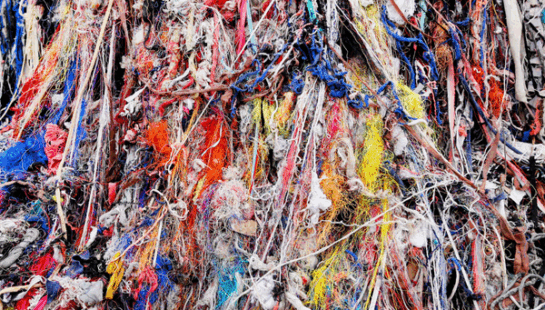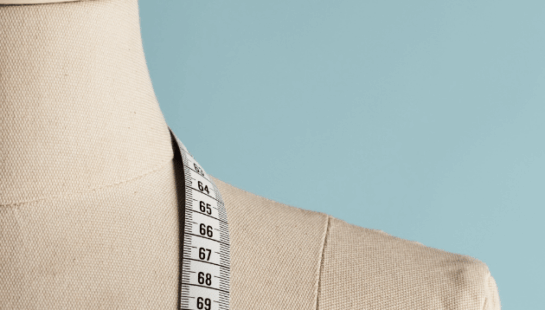Black Friday sales have been slapping me in the face this week. And I haven’t even left my home office. Social media feeds, newspaper advertisements, television ads—an onslaught of tempting sales and alluring, discounted goods. A half-price coffee machine . . . 40 per cent off leather bags . . . ‘priced-to -sell’ sundresses, just in time for summer. And this is just the start of the Christmas shopping period.
After a strange year, it seems easy to justify a few splurges. A new pair of shoes for making it through the year. An indulgent treat to kick-start holiday season. A purchase to make myself feel better about the ‘year that was’. The impulse takes over and they’ve debited my card before I’ve had time to think.
Australians Are Buying More & More Stuff
Roy Morgan research company estimated that Australian consumers would spend more than $52 billion over last year’s Christmas period. And I’ve been wondering, how much of this ‘stuff’ really added value to our lives? How much of this ‘stuff’ ended up in garbage bins or in a dark cupboard?
I’ll be the first to admit, I’m a sucker for in-store Christmas carols and sparkly decorations. There’s no doubt they bring me into a happier ‘buying space’. Standing in a supermarket, recently, I found myself aware of Michael Bublé’s smooth, dulcet tones playing in the background. As I admired the swathes of gold tinsel on the shelves, it made me smile. It made me excited for Christmas parties and fruit mince pies and celebrations to come.
More Stuff Won’t Make Up For Missed Time
And then I remembered . . . it wasn’t so long ago that I was standing in a similar local supermarket aisle. But on that occasion, it was stripped of every consumable item on its shelving. It did not make me smile. Rather, I remember my shock at the self-serving nature of so many.
Most of us in Australia want for very little—yet we often feel empty. We’re always wanting more, or bigger, or better. For many of us, this year is the first time we’ve been unable to buy basic necessities, let alone all the gifts on our family’s Christmas list. Now, though, as our Aussie shelves are restocked, bare shelves are still a daily reality for many people around the globe—pandemic and upcoming holiday aside.
A Christmas advertisement from a well-loved retailer stood out to me recently. It called on customers to ‘make up for’ everything missed this year—the birthdays, the baby showers, the weddings. Certainly, this rhetoric is tempting. After a year of aborted events, it seems we have a void to fill. Well, I’m challenging this. Perhaps it wasn’t gifts we yearned for this year. More ‘stuff’ won’t make up for it either.
Yes, COVID has transformed our purchasing habits and the relationship we have with products. Working from home means many of us don’t need many business clothes. It’s also caused us to re-evaluate what matters, what we value. As we continue the return to ‘normal’, it’s a good opportunity to remember our most pure form of fulfilment as creatures made in God’s image.
What’s The Difference Between Intrinsic & Extrinsic Motivators?
Intrinsic (internal) and extrinsic (external) motivators drive our behaviour. Extrinsic motivators promise a reward or help us to avoid punishment, but for intrinsic motivators, the behaviour itself is the reward.
Extrinsic motivators can drive our consumerism—the buzz we feel walking out of a store with something shiny and new. But when we focus intrinsically—such as on social interactions or time in nature – studies show that we experience greater overall life satisfaction. And feeding our internal motivators can also reduce our desire to feed external motivators, like consumerism.
In his book Curing Affluenza (a great read for the Christmas break) economist Richard Denniss argues that we must distinguish between consumerism (‘the love of buying things, which is undeniably harmful to us and the planet’) and materialism (‘the love of things, which can in fact be beneficial’).
Isn’t Materialism Bad?
I know what you’re thinking—isn’t materialism bad? Well, not in the way Denniss describes it. When we cherish our possessions, we adopt a far more sustainable relationship with the things around us. Their value to us becomes far greater than their price tag—meaning that we are more likely to look after them, repair when damaged, and thoughtfully consider what to do with them when no longer needed. Or as James writes, every good and perfect gift is from above!
So, instead of being caught in the whirlwind of bargain Christmas sales this season, let’s take a more conscious approach to purchasing gifts and self-splurges (we’ve put together an easy guide for you here). Take a moment to consider why you are buying, and to appreciate who you are buying for.
Let’s Look For Better Stuff Beyond ‘Stuff’
Let’s force ourselves to remember the bare shelves and the isolation. Let’s remember the joy of a hug after six weeks in lockdown. The elation of a fully stocked toilet paper aisle. Or the freedom to walk aimlessly along a beach sans purpose, or time limit. Let’s ‘make up for’ the year that was by giving more than physical clutter this Christmas.
If 2020 has taught me anything, it’s that we’re all capable of changing behaviour when needed most. And right now, our consumption habits need a full overhaul. Perhaps this isn’t the year you get everything on your Christmas list. Perhaps, this is the year you appreciate everything you already have. This Christmas season, I’m trying to reflect on what truly adds value to life, and to fuel my own intrinsic, rather than extrinsic, motivators. I hope you’ll join me . . . tis’ the season after all.



 Keziah Redelinghuys,
Keziah Redelinghuys,
